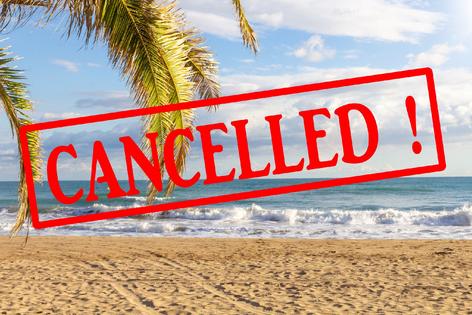Travel Insurance Can Save the Day
It happened again. The night before a long-planned family trip for 10 people to Turks and Caicos to celebrate my milestone birthday, we had to cancel the vacation. My 11-month-old granddaughter came down with a virus and a 103 F fever. Months earlier we had evacuated Duck, North Carolina, four days into a weeklong holiday as Hurricane Erin barreled toward the coast. After I spent 11 days in an Amsterdam hospital one spring, my policy helped reimburse me for the $28,000 I owed the facility, and the insurance covered a medical evacuation cost of nearly $50,000.
Travel insurance can seem like an unwanted extra, but trust me, life happens. Protection can save aggravation, money and even your life. Coverage did that for me, and I am truly thankful. What follows is not an advertisement for insurance but instead a heartfelt reminder.
Because plans and policies differ, I use Squaremouth.com, an online marketplace that makes it easy to compare more than 100 policies from some 20 major companies. That saves me time and prevents my eyes from glazing over when I try to decipher insurers' often verbose definitions of terms.
Two weeks before our planned Turks and Caicos trip, my daughter underwent emergency ACL surgery. Her policy's trip cancellation inclusion and a doctor's note covered her lodging. That eliminated her family, cutting our trip to six people. When the baby became ill and only my husband and I could travel, we gave up and cancelled too. My son's policy covered our lodgings.
Policies often grant reimbursement to travelers who cancel a journey if a close relative -- parents, children, siblings, spouse, grandparents, in-laws, step-family -- not on the trip becomes seriously ill, is hospitalized or dies. Since cousins, alas, don't make the list, I purchased "cancel for any reason" insurance when my dear cousin was seriously ill. CFAR repays just 75% of trip costs and can increase premiums by up to 40% but shields you from things that might happen between deposit and departure -- a broken engagement that nixes your honeymoon in Tahiti or your new job that comes with no accrued vacation time.
Consider that many "regular" insurance contracts address major concerns, such as health and hurricanes. We received money for lost days in Duck because the area's hurricane was named and the roads verged on impassable. But three days of sitting in a rental property looking at a slashing rainstorm won't put money back in your pocket unless you signed up for CFAR.
Timelines matter, too. Insurers often cover preexisting conditions if you purchase the policy within a window of 10-21 days after booking the trip. (Policies differ and conditions apply.) Buying insurance early doesn't cost more and gives me peace of mind.
Of course I purchased travel insurance for my trip to Amsterdam, but to save a few hundred dollars I bought secondary medical coverage. After all, the airfare and the hotel during peak tulip season were expensive enough. Then a bizarre thing happened. One of my heart's mitral valves prolapsed, causing severe double pneumonia. Because of the ICU's excellent care, I survived.
Upon discharge 11 days later, the hospital presented me with a $28,000 invoice, which I had to pay. I hoped that my primary U.S. insurance would cover me. Luckily, the hospital allowed me to use a credit card. Months later, my U.S. insurance reimbursed me for $21,000 and my travel insurance covered $7,000.
Getting back to Washington, D.C., required nearly $50,000 more. I didn't undergo surgery in Amsterdam. The doctors only stabilized me enough to fly on a nonstop flight with a nurse and an oxygen concentrator. It was high season in Amsterdam. Flights were full. Through broker connections, the travel insurance company booked two one-way seats on a non-stop flight for my nurse and me at about $11,000 each. The insurance also covered part of my husband's flight home. The total cost hovered close to my medical evacuation coverage cap of $50,000.
Medical transport can cost much more, depending on the distance flown and the care required. Some credit cards provide emergency medical advice and connect you with transporters, but most credit cards don't pay the fees required.
I am happy to be alive and well, and I am still an exuberant traveler, just a wiser one.
----
WHEN YOU GO
I worked with Squaremouth Travel Insurance (squaremouth.com). Various outlets such as U.S. News & World Report and Money.com also publish articles comparing the travel policies of different insurance companies.
========
Candyce H. Stapen is a writer at www.greatfamilyvacations.com. Follow her on Instagram @candycestapen Twitter @familyitrips (Candyce H. Stapen), www.facebook.com/FamilyiTrips/ and at www.hennyskids.org, her non-profit that brings solar-powered computers and soccer balls to rural schools in Africa.
Copyright 2025 Creators Syndicate, Inc.


































Comments